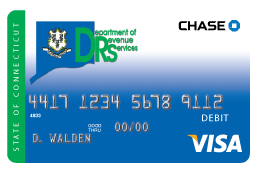Finance points
Home rules to change
for hedge funds
The Securities and Exchange Commission ruled the value of a hedge fund investor”™s primary residence will no longer count in calculating net worth for determining who is a “qualified client” and may therefore be charged a performance fee.
The revised rule will require “qualified clients” to have at least $1 million of assets under management with a hedge fund adviser, up from $750,000, or a net worth of at least $2 million, up from $1.5 million. The increase was required by the 2010 Dodd-Frank Wall Street Reform and Consumer Protection Act.
In December, the SEC amended its rules to exclude the value of a person”™s home from net worth calculations used to determine whether an individual is an “accredited investor,” and therefore may invest in hedge funds.
“The change is consistent with changes the Commission approved in December to net worth calculations for determining who is an ”˜accredited investor”™ eligible to invest in certain unregistered securities offerings,” the SEC stated in a release.
The decisions will have an outsize impact in Fairfield County, where home values are high and often make up a substantial percentage of an investor”™s total assets.
Under SEC rules, registered investment advisers may charge clients performance fees if they are classified as “qualified clients.” To invest in such funds, clients must meet the “accredited investor” threshold.
The classifications are aimed at making sure that hedge fund clients are able to bear the risks associated with hedge fund investing, including steep performance fees.
Payroll tax cut extended
The Internal Revenue Service has released a revised Form 941 enabling employers to properly report the newly extended payroll tax cut.
Under the Middle Class Tax Relief and Job Creation Act of 2012 passed in February, workers will continue to receive larger paychecks for the rest of this year based on a lower Social Security tax withholding rate of 4.2 percent, which is two percentage points less than the 6.2 percent rate in effect prior to 2011.
Self-employed individuals will also benefit from a comparable rate reduction in the Social Security portion of the self-employment tax from 12.4 percent to 10.4 percent. For 2012, the Social Security tax applies to the first $110,100 of wages and net self-employment income received by an individual.
Debit card refunds
For the first time, the Connecticut Department of Revenue Services will issue debit cards for state tax refunds under $5,000, with the Chase Bank Visa cards able to be used at retail locations.
DRS said the move would save nearly $300,000 annually.
Cards can be activated and assigned a PIN at Chase Bank or People”™s United Bank branches or via a Chase website or telephone number furnished with the cards.
Joint filers will each receive a debit card loaded with the amount of the joint refund. Taxpayers can also request direct deposit of any refund.
